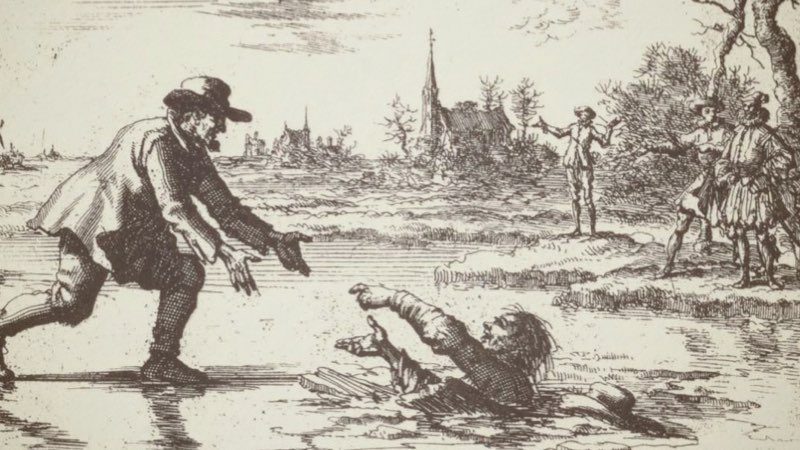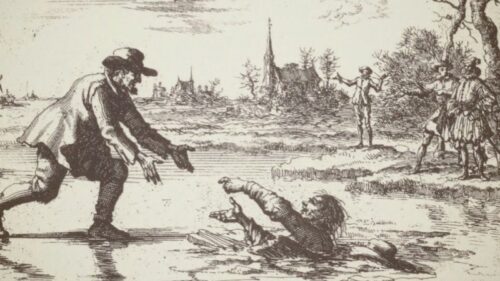-
8. Of Doctrinal Succession
Succession of Doctrine Here the words of Tertullian are applicable. He says: "The Christian church is called apostolic not just because of the succession of persons, but on account of the kinship of doctrine, since she holds the doctrine of the apostles." Lib. de praescript, etc. This doctrine everyone who boasts ["Let no man glory in men," says Paul, I Cor. 3:21. We may not glory, therefore, in the succession of eminent persons, if they do not derive their eminence from the eminence and truth of the word of God. The prophet Jeremiah, going further yet in this point, has cursed that man who trusts in man, and maketh flesh his arm. Jer. 17:5.] of the true succession, must prove from the true apostolic writings,…
-
7. Of Personal Succession
Personal Succession As a great building, house, or castle, can be considered, firstly, with regard to it as a whole, and, secondly, with respect to its different parts, so also the whole church of Christ can properly be considered: firstly, in the whole or in general, as comprising all the congregations in the whole world, which have in common the most holy faith, and the practice, which, according to God's holy Word, must follow therefrom; secondly, in any particular part of the same, as, this or that church which is in accord with it, as for instance, the church at Amsterdam, Harlem, Dort, etc. Likewise there is also (or, certainly can be) a twofold personal succession: (1) a general, (2) a particular one. By the…
-
6. Of the Church’s Succession
The Succession of the Church of God, Personal Succession, and Succession of Doctrine From the Latin word saccedo, that is, to go under, or to take the place of one, is derived the word, succession, which we, though improperly, have mixed into our Dutch language. The various branches proceeding from this root, that is, the numerous words taking their origin from it, together with their significations, we leave untouched; in general we understand by it, to follow any one in his place, right, or reign. There is a twofold succession, natural and spiritual, political and ecclesiastical, or civil and ecclesiastical; but we have to speak here only of the spiritual and ecclesiastical, and not of the natural, political, or civil, succession; for only the former,…
-
5. Of the Church’s Obscurity
The Church of God Obscured and Rendered Almost Invisible in Some Place; and What has been the Cause of it from Ancient Times As the moon, notwithstanding her substance and body never perish, is not always seen in her full light by the human eye, either, because she sinks beneath the horizon, or, being too close to the sun, is obscured by him, or, being far from the sun, is darkened by the shadow of the earth, which is called an eclipse; even so it is with the substance and appearance of the church of God on earth. The latter, though never perishing entirely, does not always show herself in her full form, yea, at times she seems to have vanished altogether, yet not in…
-
4. Of the Church’s Characteristics
Of the Stability, Durability and Visible Characteristics of the Church of God That this church, from the beginning to the time of David, was always visible, discernible, and distinguished from other nations, is clear and manifest, and, as far as we know, not doubted by anybody. There remains, then, only to be proved, that the same after the time of David, has always been discernible, according to the preceding manner, and will continue to be so to the end. [The discernibility of the church of God before the time of David, will, we think, not be disputed; and we shall begin, therefore, from that period, leaving the time previous to that untouched.] To show this, the song of David of the city or church of…
-
3. Of the Church’s Continuance
In What Points the Church of God has Always Continued the Same God has always ordained teachers in His church, and, therefore, always caused His will to be proclaimed to the people; which commenced principally in the days of Enos, the grandson of Adam; for then began men to call upon the name of the Lord. 4:26. Enoch, the seventh from Adam, preached of the judgment and the great day of vengeance of the Lord. Jude vv. 14, 15. Abraham, the father of the faithful, preached of the name of the everlasting God. Gen. 21:33. Moses preached of the faithfulness, goodness, and righteousness of God; so that his doctrine dropped as the rain, and his speech distilled as the dew. Deut. 32:2-5. David preached of…


